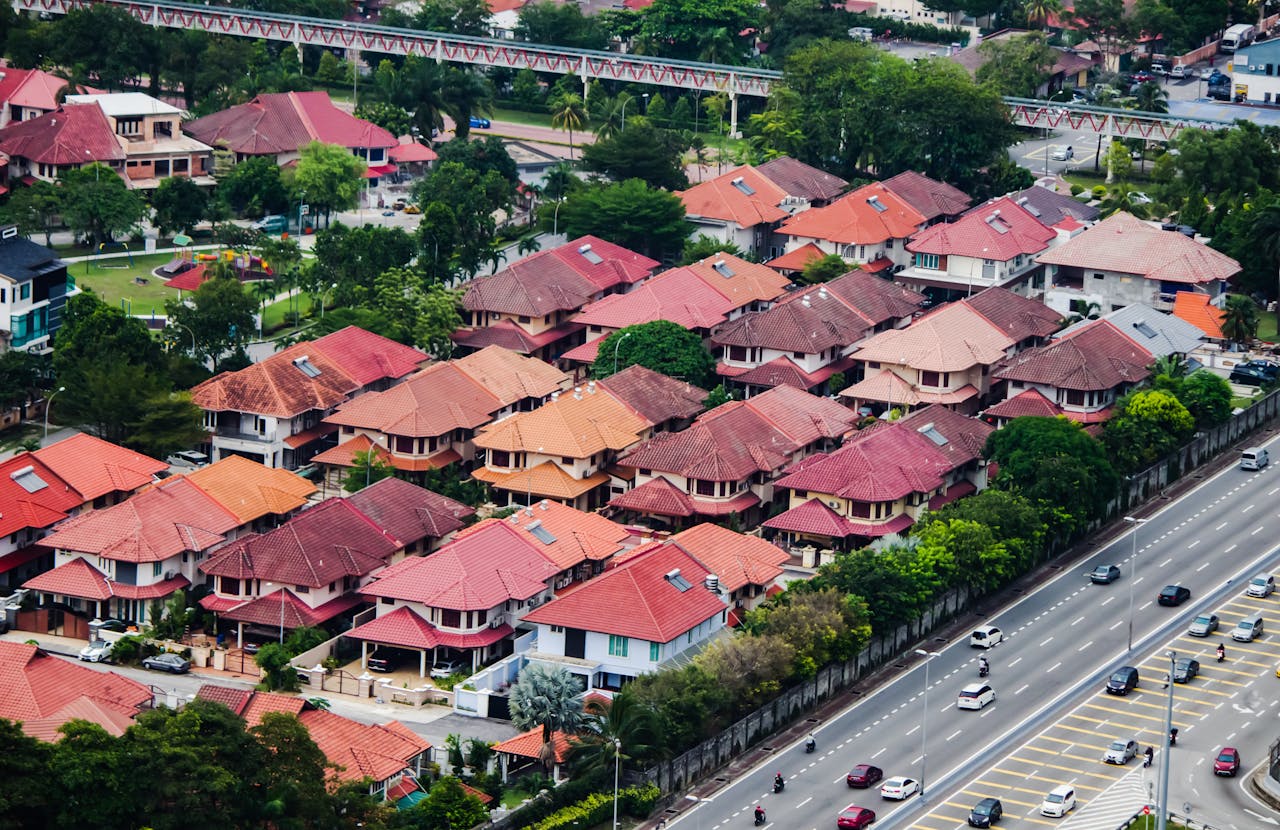Homeownership schemes are essential to improving housing accessibility in Malaysia, reducing socioeconomic disparities, and building resilient, inclusive communities.

The Importance of a Well-Functioning Housing System
Housing is a fundamental component of a nation’s socio-economic framework, directly impacting individuals’ quality of life, social stability, and economic growth. This can be achieved through effective homeownership schemes and housing accessibility. A well-functioning housing system ensures citizens access to affordable, quality housing options, fostering inclusivity and reducing social inequalities. Globally, countries prioritise housing policies, particularly those centered around homeownership schemes, as they significantly contribute to public health, economic mobility, and community well-being through improved housing accessibility.
Adequate housing schemes promote stable families, enhance productivity, and support sustainable urbanisation. In Malaysia, housing policies have historically aimed to balance affordability with economic development. Initiatives such as the People’s Housing Project (PPR) and Skim Rumah Pertamaku (First Home Scheme) reflect efforts to address affordability and accessibility, particularly for low- and middle-income groups.
The Challenges
However, challenges persist, including rising property prices, inefficient land management, and inadequate social housing options. Urbanisation has also worsened these challenges, creating a growing demand for housing that outpaces supply in major cities. This has left many Malaysians, particularly first-time homebuyers and lower-income households, struggling to secure affordable homes.
How Do Homeownership Schemes Influence Housing Accessibility and Social Stability in Malaysia?
Government-led homeownership schemes play a pivotal role in enhancing housing accessibility and fostering social stability. Singapore’s policies exemplify how comprehensive and strategically designed schemes can achieve these goals. Singapore’s Housing and Development Board (HDB) prioritises affordability and accessibility through subsidised pricing and grants, ensuring that homeownership is within reach for most citizens.
Additionally, strict eligibility criteria safeguard these benefits for local residents, while ethnic integration policies promote social cohesion. The Central Provident Fund (CPF) further empowers citizens by mandating savings for housing and reducing financial barriers. These measures have enabled Singapore to maintain high homeownership rates, create inclusive communities, and foster economic stability.
In contrast, the UK’s fragmented approach highlights the adverse effects of inadequate homeownership policies. Long-lasting underinvestment in new housing, a loss of social housing stock, and unaffordable housing prices have aggravated inequalities. Planning constraints and insufficient government intervention have shifted the burden to the private rental sector, where rising costs and insecure tenancies undermine housing stability. The lack of a solid long-term strategy has left vulnerable groups without adequate support, contributing to social instability and economic disparities.
Malaysia can draw vital lessons from these contrasting approaches by adopting Singapore’s emphasis on affordability, social cohesion, and long-term planning. Implementing comprehensive homeownership schemes that prioritise local needs, promote inclusivity, and integrate financial mechanisms like the CPF can enhance accessibility and stability.
Simultaneously, avoiding the UK’s pitfalls, such as over-reliance on private markets and insufficient regulation, is crucial to creating sustainable and equitable housing policies tailored to Malaysia’s unique socio-economic context.
Policy Recommendation on Homeownership
To ensure sustainable homeownership policies prioritising affordability and social stability, Malaysian policymakers must adopt a holistic approach that draws lessons from Singapore’s success while avoiding the pitfalls of the UK’s housing failures. The government should strengthen affordability by expanding financial assistance programs, such as targeted subsidies and grants for first-time homebuyers, with clear eligibility criteria to benefit low- and middle-income households.
For example, expanding financial assistance programs can introduce a “First-Home Assistance Grant” targeted at low- and middle-income households earning less than RM8,000 per month. This grant could provide a one-time subsidy of a certain amount to first-time homebuyers for properties priced below a benchmarked amount. Additionally, mechanisms like the Central Provident Fund (CPF) in Singapore, which empowers citizens to save for housing, could be adapted to Malaysia’s context, fostering greater financial independence and reducing household debt dependency.
The adoption of a Build-Then-Sell (BTS) housing model should be prioritised to address the risks associated with project abandonment under the current Sell-Then-Build (STB) system. Stricter regulations and monitoring mechanisms for developers, along with mandatory insurance schemes to protect buyers against project delays or cancellations, would build public trust and enhance market resilience.
For example, a “Housing Project Assurance Act” should be introduced that mandates developers to adhere to stringent standards and provides safeguards for homebuyers. Developers must purchase insurance policies covering project delays or cancellations. In case of a default, the insurance pays buyers for financial losses, such as mortgage payments and rental costs incurred during delays. A fixed percentage of buyer payments must be placed in escrow, only to be released upon verified completion of construction milestones, reducing risks of mismanagement.
A centralised digital platform overseen by the Ministry of Local Government Development could track project progress, ensuring transparency and providing real-time updates to buyers and regulators. Additionally, the federal government should consider incentivising private developers to construct affordable housing units by offering tax benefits and access to public land.
Furthermore, Malaysia should integrate policies that promote social unity, such as ethnic integration quotas modelled after Singapore’s successful HDB schemes, to ensure harmonious and inclusive communities. Emphasising comprehensive urban planning that prioritises accessibility, connectivity, and amenities will make homeownership more desirable and viable.
Dr Nivakan Sritharan, Jacqueline Chang Siak Gek, and Nurul Ilma binti Salleh are lecturers at Swinburne University of Technology Sarawak Campus, specialising in accounting, business, applied accounting, and international business. Their research interests include behavioural accounting, taxation, economics, investment, human resources, marketing, cross-cultural studies, consumer trends, and corporate social responsibility. They can be contacted at [email protected], [email protected], and [email protected] respectively.

